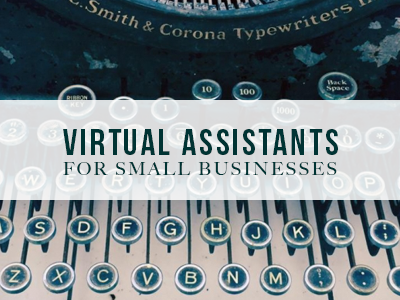If you are a small business owner, you may feel like you wear a lot of hats. You may take on marketing, accounting, and customer service roles, which can leave you feeling overwhelmed. In our age of technology and with the more widely-accepted practice of “remote work,” there is a way to free up your time without hiring more employees.
Virtual assistants (or VAs) are people who work on a freelance or contract basis. (No, they are not robots or advanced computer operating systems!) You can find individuals specializing in this kind of work on websites like odesk or elance. However, if you’re new to the world of VAs, it can be difficult to decide what tasks to offload.
Research: VAs are fantastic resources if you need some research conducted. Whether you’re looking for new clients, writing a white paper, or searching for your next social media manager, a VA can save you hours, googling on your behalf.
Presentations: Imagine you are about to pitch your business to a potential investor. You will need to collate some quantitative data. A VA, especially one with some design skills, can translate those numbers into an engaging presentation to secure that next investment!
Data Entry: Although you may already have a bookkeeper, a VA can help with other kinds of data entry tasks, like updating client information.
Finding Leads: It’s certainly possible for your VA to help find new leads for your business. Before entrusting this task to a stranger, however, be sure he or she has an understanding of your domain and your target market.
Scheduling: With a variety of apps designed for scheduling, like Google Calendars, it’s easier than ever to outsource schedule management to a VA.
Working with a virtual assistant is different than working with face-to-face employees. Because of the remote nature of the work, it is crucial to give specific and clear instructions. If you don’t, you may be surprised by a hefty invoice at the end of the month! Nevertheless, VAs are a great way to save time, and through this, money.

